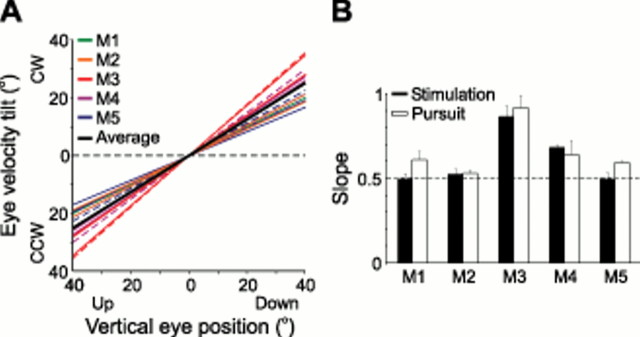Figure 4.
Stimulation-evoked eye movements have the same eye position dependence as visually guided pursuit. A, For all sites tested with microstimulation, slopes closely approximate the half-angle rule (slope, 0.5) and not a zero-angle rule (slope, 0) (black dashed lines). This finding is observed for both nerve (solid lines) and nucleus (dashed lines) stimulation. CCW, counterclockwise; CW, clockwise. B, All monkeys were also required to pursue a horizontal, sinusoidally moving target (frequency, 0.6 Hz; amplitude, 5°) at five vertical eye positions (20° up to 20° down in 10° intervals). Computed half-angle rule slopes from pursuit (□) are compared with the median stimulation slopes (▪) for each of the five animals. The error bars indicate 95% confidence intervals. An ideal half-angle rule slope of 0.5 (black dashed line) is also shown. Note that differences in slopes from the ideal half-angle rule of 0.5 may be attributable to the number of eye coil surgeries in each animal: M1 had one eye coil surgery; M2 had one eye coil surgery; M3 had six eye coil surgeries; M4 had four eye coil surgeries; M5 had three eye coil surgeries.

